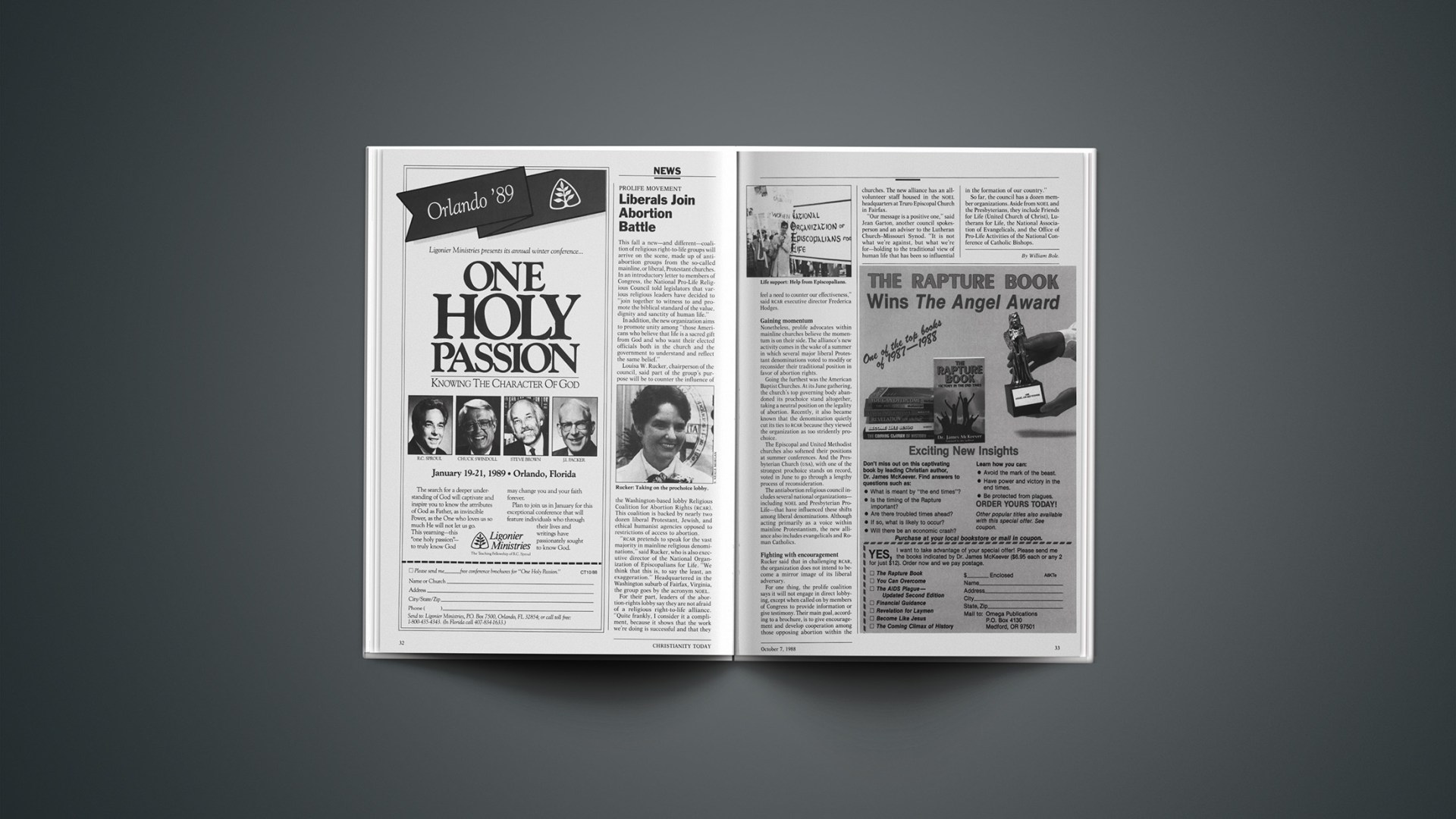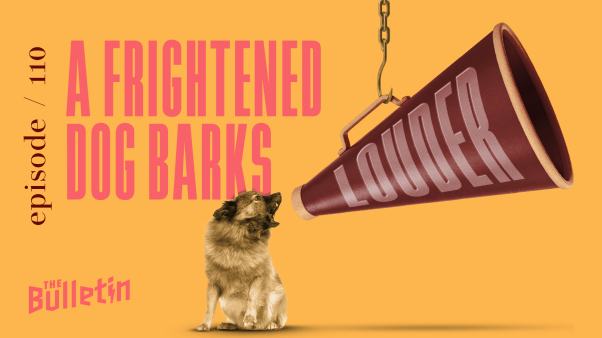PROLIFE MOVEMENT
This fall a new—and different—coalition of religious right-to-life groups will arrive on the scene, made up of antiabortion groups from the so-called mainline, or liberal, Protestant churches. In an introductory letter to members of Congress, the National Pro-Life Religious Council told legislators that various religious leaders have decided to “join together to witness to and promote the biblical standard of the value, dignity and sanctity of human life.”
In addition, the new organization aims to promote unity among “those Americans who believe that life is a sacred gift from God and who want their elected officials both in the church and the government to understand and reflect the same belief.”
Louisa W. Rucker, chairperson of the council, said part of the group’s purpose will be to counter the influence of the Washington-based lobby Religious Coalition for Abortion Rights (RCAR.) This coalition is backed by nearly two dozen liberal Protestant, Jewish, and ethical humanist agencies opposed to restrictions of access to abortion.
“RCAR pretends to speak for the vast majority in mainline religious denominations,” said Rucker, who is also executive director of the National Organization of Episcopalians for Life. “We think that this is, to say the least, an exaggeration.” Headquartered in the Washington suburb of Fairfax, Virginia, the group goes by the acronym NOEL.
For their part, leaders of the abortion-rights lobby say they are not afraid of a religious right-to-life alliance. “Quite frankly, I consider it a compliment, because it shows that the work we’re doing is successful and that they feel a need to counter our effectiveness,” said RCAR executive director Frederica Hodges.
Gaining Momentum
Nonetheless, prolife advocates within mainline churches believe the momentum is on their side. The alliance’s new activity comes in the wake of a summer in which several major liberal Protestant denominations voted to modify or reconsider their traditional position in favor of abortion rights.
Going the furthest was the American Baptist Churches. At its June gathering, the church’s top governing body abandoned its prochoice stand altogether, taking a neutral position on the legality of abortion. Recently, it also became known that the denomination quietly cut its ties to RCAR because they viewed the organization as too stridently pro-choice.
The Episcopal and United Methodist churches also softened their positions at summer conferences. And the Presbyterian Church (USA,) with one of the strongest prochoice stands on record, voted in June to go through a lengthy process of reconsideration.
The antiabortion religious council includes several national organizations—including NOEL and Presbyterian Pro-Life—that have influenced these shifts among liberal denominations. Although acting primarily as a voice within mainline Protestantism, the new alliance also includes evangelicals and Roman Catholics.
Fighting With Encouragement
Rucker said that in challenging RCAR, the organization does not intend to become a mirror image of its liberal adversary.
For one thing, the prolife coalition says it will not engage in direct lobbying, except when called on by members of Congress to provide information or give testimony. Their main goal, according to a brochure, is to give encouragement and develop cooperation among those opposing abortion within the churches. The new alliance has an all-volunteer staff housed in the NOEL headquarters at Truro Episcopal Church in Fairfax.
“Our message is a positive one,” said Jean Garton, another council spokesperson and an adviser to the Lutheran Church-Missouri Synod. “It is not what we’re against, but what we’re for—holding to the traditional view of human life that has been so influential in the formation of our country.”
So far, the council has a dozen member organizations. Aside from NOEL and the Presbyterians, they include Friends for Life (United Church of Christ), Lutherans for Life, the National Association of Evangelicals, and the Office of Pro-Life Activities of the National Conference of Catholic Bishops.
By William Bole.










